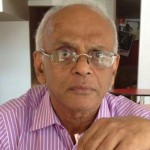Should A Credibility Restoration Exercise Be Launched For Sri Lanka’s Statistics Agency?
 Alleged massaging of growth numbers: Should a credibility restoration exercise be launched for Sri Lanka’s statistics agency?
Alleged massaging of growth numbers: Should a credibility restoration exercise be launched for Sri Lanka’s statistics agency?
Allegation of massaging GDP numbers
A recent newspaper report has alleged that the top-most official in the
country’s official Statistics Bureau, the Department of Census and
Statistics or DCS, has instructed the officer handling the GDP numbers
to increase the growth rate in Quarter I of 2013 from 5.5% to 6% when
there were no ground conditions warranting the issue of such
instructions (available here ).
The top-most official concerned has denied any wrong-doing but declined
to give details of his side of the story expecting the problem to die
away ‘just like the bubbles forming instantly in an opened bottle of
soda will die away on their own accord’. He has good reason to rely on
this bubble-dying theory since the media do not follow up these stories
and the civil society is somewhat apathetic to them.
However, in this digital world, there is already a digital footprint of
this allegation in the clouds and therefore it cannot die off naturally
as things would have happened a few decades ago. To add to the digital
footprint, previously, at the Committee Stage of the Budget 2014 debate,
the opposition Parliamentarian Anura Kumara Dissanayake too had made
the same allegation in Parliament quoting a statement reported to have
been made by the officer concerned at an initial disciplinary inquiry.
It is a serious allegation since the country’s credibility is at stake
Nothing has been proved or disproved
as yet. But, this allegation is serious enough to deserve the attention
of top politicians on both sides of the House, top policy makers,
academia, international watchdogs of the country’s economic data such as
IMF and World Bank and civil society activists.Read More

